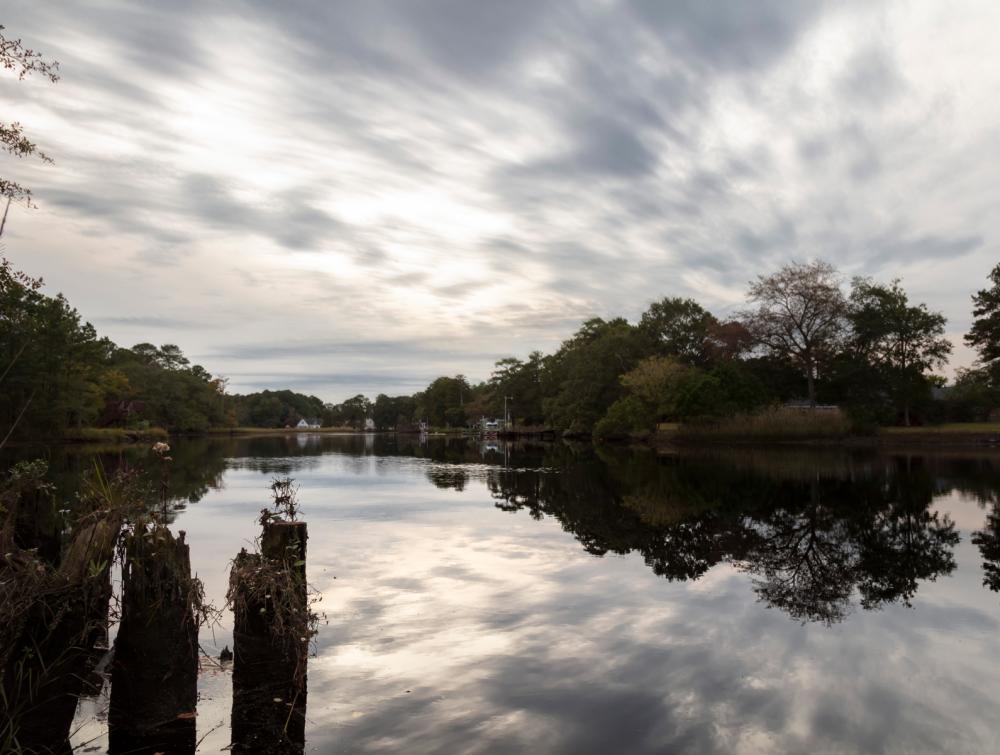Great Dismal Swamp National Heritage Area Act Signed Into Law

Area where Deep Creek becomes the main Dismal Swamp Ditch in the Great Dismal Swamp, Virginia
Andrew Woods
The bipartisan bill will seek to protect historic and ecological sites for future generations
Washington, DC (January 6, 2023) --The Senate passed the Great Dismal Swamp National Heritage Act with unanimous consent, sending the bill to the President’s desk yesterday. The legislation, introduced by Sen. Kaine and the late Rep. McEachin, is a bipartisan bill directing the Secretary of the Interior to assess the suitability and feasibility of designating the Dismal Swamp and its associated sites as a National Heritage Area.
“The Wilderness Society is thrilled to see The Great Dismal Swamp on the path to becoming a National Heritage Area,” Said Jill Gottesman, Southern Appalachian Landscape Director at The Wilderness Society. “The Great Dismal Swamp is one of the most ecologically and historically significant areas on the east coast, including a National Wildlife Refuge that boasts a thriving wetland ecosystem. In addition to being the ancestral homeland of the Nansemond Indian Nation and the historic lands of the Haliwa-Saponi and Meherrin Tribes, the Great Dismal Swamp contains one of the only water-based stops on the Underground Railroad. Thank you to Congress, the late Rep. McEachin, Senator Kaine and President Biden for recognizing the significance of the Great Dismal Swamp for its rich biodiversity and the role it has played in our country’s history.”
Throughout history, The Great Dismal Swamp has provided a critical migration corridor for people and wildlife alike. Within the swamp’s bounds, The Great Dismal Swamp National Wildlife Refuge is the largest intact remnant of a habitat that once covered more than one million acres of southeastern Virginia and northeastern North Carolina. It is home to over 200 species of birds, nearly 100 species of butterflies and turtles, and boasts one of the largest black bear populations on the east coast.
National Heritage Areas (NHAs) are sites designated by Congress to hold historical, cultural and environmental significance to the American people that tell important stories celebrating our nation’s diverse heritage. This designation does not affect private property rights. Studies by the National Park Service have shown that National Heritage Areas provide billions of dollars in economic benefits to communities via revenue from tourism, local jobs, federal investments and private philanthropy while also elevating the history and culture of the region.
The following statement is from the Great Dismal Swamp Stakeholder Collaborative Leadership Team, and can be attributed to Elder Benjamin Keeling, Chief Emeritus Sam Bass, Heather Barlow, and Alexa Sutton Lawrence:
"The Great Dismal Swamp Stakeholder Collaborative expresses its deepest thanks to the Senate and House for passing the Great Dismal Swamp National Heritage Act -- a crucial step toward protecting America's rich cultural and ecological history. We were honored to have had the privilege of working to achieve this with the late Rep. Don McEachin, who fought diligently for environmental and human rights causes and was a champion and friend to us. As we go forward, we hope to do his memory justice."
Additionally, the following quote can be attributed to Alexa Sutton Lawrence, PhD:
"The Dismal Swamp is an area of immeasurable value to history; it is a place of power and liminality, in which freedom, refuge, power, and fortune were sought. It was a crossing point, through which innumerable American stories became joined; in these stories, of Indigenous peoples' survivance, Africans' resistance and resilience, African Americans' liberation, Free People of Colors' ingenuity and Europeans' determination we find the essential guidance to take our nation forward.”
##
For media inquiries, please contact Jen Parravani at jen_parravani@tws.org or (202) 601-1931.
